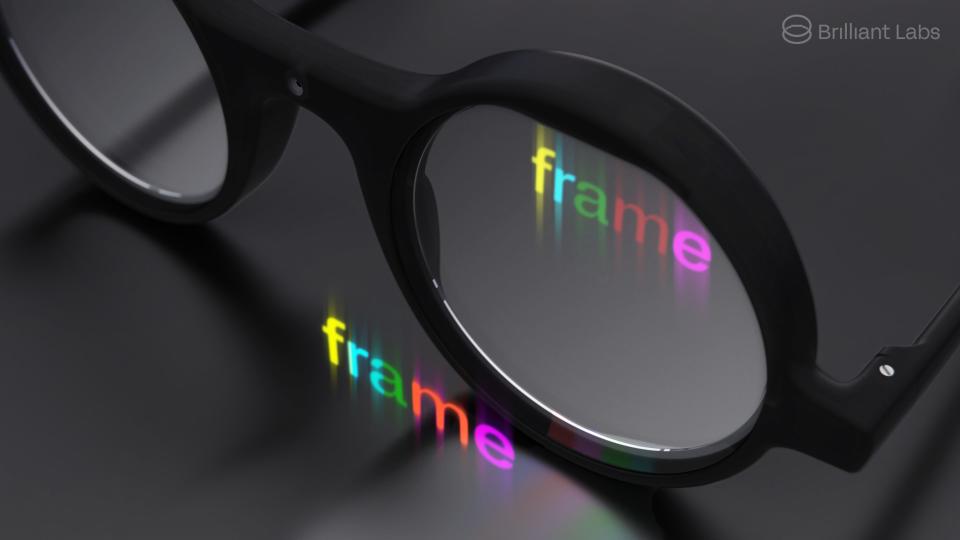For $350, you too can have glasses with 'AI superpowers' (and look like a modern-day Gandhi)

Brilliant Labs just launched a pair of glasses powered by a multimodal AI assistant.
They look like normal glasses but can translate speech, search the web, and generate images.
The glasses are also open source. The design files, code, and documentation are all on GitHub.
The glasses prescription you didn't know you needed: AI.
Brilliant Labs — a Singapore-based startup funded by the creator of Pokemon Go — just released Frame, a $350 pair of non-prescription glasses powered by a multimodal AI assistant called Noa.
The company bills them as “a reinvention of eyewear for the AI era.” They come with a host of “superpowers” that allow them to process visual information, generate images, recognize and translate speech in real time, search the web, and more.
The company said they’re designed as "an homage" to the innovations and ideas of historical icons like John Lennon, Steve Jobs, and Gandhi — all known for their “circular spectacles.”

The glasses are powered by a series of AI models, including OpenAI’s GPT-4 and speech recognition technology Whisper, Stability AI’s Stable Diffusion, and Perplexity, the company told Business Insider.
Brilliant Labs eventually plans to embed AI models directly into the glasses, but for now, they need to be paired with a smartphone app to work.
“Frame is prompted directly with a tap and speech to initiate dialogue with Noa,” Brilliant Labs cofounder and CEO Bobak Tavangar told BI. The glasses project visuals and information directly onto the lenses, so wearers can prompt them with requests for information about almost everything they see or hear.

If you’re wearing Frame in the grocery store, for example, and you want to know more information about a pint of raspberries, you can prompt Frame to query the web for comparative pricing from an online grocery store. Similarly, the glasses can query both available live web sources and GPT-4 for nutritional information, Tavangar said.
Frame is also fully open-source. The design files, code, and documentation are available on GitHub, so users have the capacity to adjust and run the code they want on their device, the company said.
Tavangar hopes Frame will help humans have a healthier relationship with technology.
“We are entering an age of embodied AI and Frame very much represents a big step in that direction,” Tavangar told BI. “Our aspiration has always been to make devices that foster understanding, empathy, and connection so that this advent of intelligent computing is characterized more by genuine human well-being than we’ve seen from the smartphone.”
Frame joins a growing list of devices capitalizing on AI to wean people off their smartphones. The AI startup Humane launched a nearly $700 Ai Pin in November that combines voice command with AI to answer questions, summarize texts, translate languages, and play music.
And at 0.39 grams, Frame could be a lighter, cheaper, more wearable alternative to the buzzy Vision Pro, Apple’s $3,500 mixed reality headset, that comes in at closer to 600 to 650 grams.
Frame is now available for preorders on Brilliant Labs’ website and will start shipping in mid-April.
Read the original article on Business Insider


